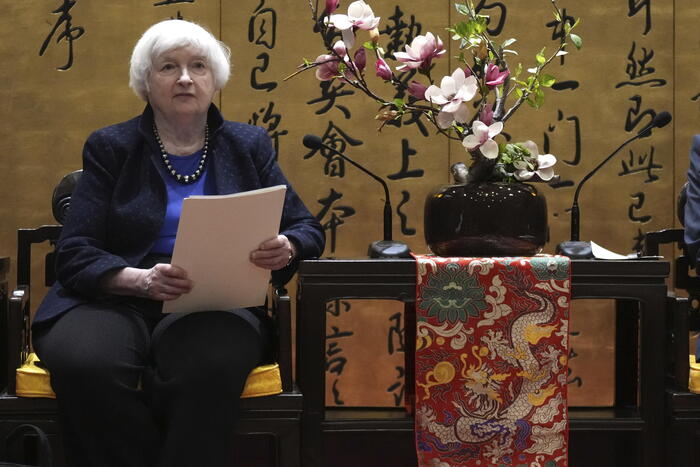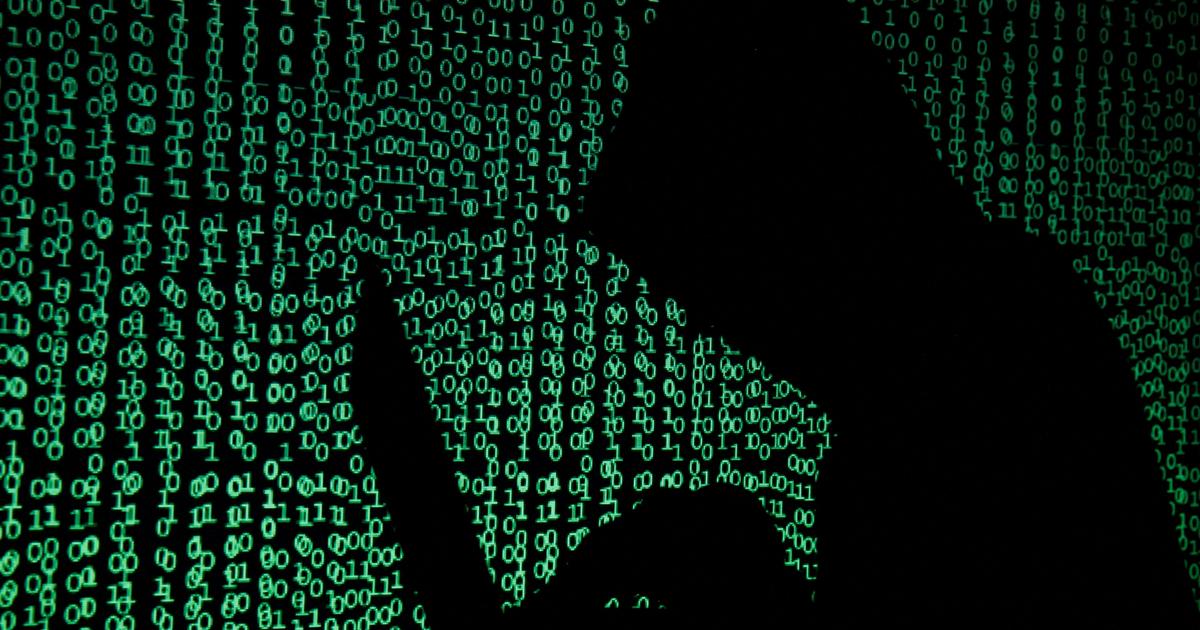US has monitored China-Russia relationship since 2022, says official 1:52
(CNN) --
The United States directly warned Tuesday that it would target Chinese companies or individuals involved in any attempt to send lethal aid to Russia for its war in Ukraine, underscoring a deepening standoff with its superpower rival.
In the most specific public exhortation to Beijing on the matter to date, US Secretary of State Antony Blinken insisted that arming Moscow's forces would cause Beijing serious problems around the world.
"China cannot have it both ways when it comes to...Russian aggression in Ukraine. It cannot put forward peace proposals on the one hand and add fuel to the fire that Russia has caused on the other," Blinken said in Kazakhstan.
US officials have spent the past 10 days warning that they have intelligence that China is considering sending lethal aid to Russia.
This has drawn fury from Beijing and highlighted that already frayed diplomatic relations are rocked by crises on an almost daily basis, from a recent spy balloon controversy to a reignited dispute over the precise origins of Covid-19.
On Monday night, the White House gave federal agencies 30 days to remove TikTok, owned by the Chinese company ByteDance, from federal devices.
And later this Tuesday, a new select House committee will hold its first hearing on the growing rivalry between China and the United States.
Federal agencies have 30 days to ban the use of TikTok on government devices, says the White House
In his most blunt comments about how the US would respond if China decided to help its ally Russia with lethal equipment, Blinken spoke of punishments for Chinese companies that could see Beijing pay an economic price.
"We warned China very clearly about the implications and consequences of going ahead with that support," referring to his own meeting with senior Chinese diplomat Wang Yi in Munich earlier this month and President Joe Biden's talks with President Xi Jinping in Indonesia. in November 2022.
advertising
"We will not hesitate, for example, to target Chinese companies or individuals that violate our sanctions, or otherwise engage in supporting the Russian war effort," he said.
The renewed fighting—along with rising tensions between US and Chinese forces in Asia and escalating fighting around Taiwan—is setting the stage for a long-standing superpower rivalry that was once theoretical but is suddenly a reality. daily.
This increasingly adversarial relationship affects multiple areas of American life, from the economy to public health.
It ranges from the challenges facing the US military, which finds itself in the midst of the great geopolitical confrontations of the early 21st century, such as in Ukraine, to the risks posed by applications of Chinese design in the electronic devices that everyone takes with them everywhere.
This is fueling the dangerous possibility that the US and China could be locked on a potentially disastrous path towards conflict.
And it poses serious challenges for a polarized American political establishment that struggles to have a rational debate on these issues without falling into the partisan game of who can be tougher on China.
China rolls out red carpet for key Putin ally as US warns against Russian war aid
It is in this politicized atmosphere that the GOP-controlled House of Representatives is launching a new bipartisan committee on competition with China during a prime-time hearing on Tuesday night, just as tensions between Washington and Beijing have rarely been worse.
The commission's work will be based on the premise that, after years of trying to peacefully integrate China into the global system as a competitor rather than an enemy, the United States is shifting to a tougher stance in the belief that a new generation of Chinese leaders is attempting to dismantle the US global order and international law.
Republican Rep. Mike Gallagher, chair of the new committee, told CNN's Manu Raju that Tuesday's hearing would not specifically focus on the latest drama, after the Department of Energy assessed with low confidence that The covid-19 pandemic originated from a leak from a laboratory in the Chinese city of Wuhan.
Gallagher said that conclusion, which is a minority opinion among US intelligence agencies, could be examined at a future hearing, but that he wanted to show Americans Tuesday that the threat from China was "not just a problem there, it's . .. right here".
"We want to understand where we got it wrong about the Chinese Communist Party and what we need to understand about it in the future to get our politics right," the Wisconsin Republican said.
Speaking on CBS News on Sunday, Gallagher warned: "We can call this a strategic competition, but it's not a tennis match. It's about what kind of world we want to live in. Do we want to live in Xinjiang-lite or do we want to live in the world free?" he said, referring to the Chinese region where the United States has accused China of inflicting genocide on the Uyghur minority, a charge China continues to vehemently deny.
The committee may be one of the few areas where a divided Congress -- and potentially the White House -- can find common ground.
The Biden administration has reinforced the already tough stance toward China that former President Donald Trump took later in his presidency.
Biden, for example, signed a new law last year that would allow the government to spend $200 billion in an attempt to claim leadership of the semiconductor chip industry, a critical sector that could decide the economic race between the US and China in the coming decades.
This is how China helps prop up Russia's economy
The controversy over the origin of covid-19 begins a new dialectical war across the Pacific
The new controversy over the origin of Covid-19 is an isolated study of many of the forces tearing US-China relations apart, including America's mistrust of the Chinese Communist Party and its leader Xi Jinping's desire to preserve its prestige and that of a political system that it presents as an alternative to Western democracy.
US demands for information about the origins of the pandemic show how China refuses to play by global rules, in this case, when it comes to allowing follow-up virological investigations.
All this only exacerbates the intense reaction in Washington and, in turn, tears at American political dividing lines.
There is no consensus in the United States government about the origins of the pandemic.
Intelligence agencies remain divided on whether it began with transmission from animals to humans in a Wuhan wet market or originated in a virus leak from a Chinese lab, and no new evidence supporting the lab leak theory has emerged publicly.
Investigating the origins is enormously important.
"The bottom line is that neither the laboratory leak nor the spread, that is, animal origin, can be ruled out. We have no definitive information," Tom Frieden, former director of the Centers for Disease Control and Prevention, told CNN on Monday. Diseases of the United States (CDC).
ANALYSIS |
New assessment of the origins of covid-19 adds more confusion to the public discussion about the coronavirus
But Republicans were quick to claim political victory in the wake of a Sunday Wall Street Journal report of new intelligence leading the Energy Department to believe with little confidence that a lab leak was to blame.
Georgia Rep. Marjorie Taylor Greene, who has been accused of spreading conspiracy theories about the pandemic, tweeted: "Conspiracy theorists - 100 Media - 0."
Republican Sen. Tom Cotton of Arkansas tweeted: "On the Chinese lab leak, being proven right doesn't matter. What matters is holding the Chinese Communist Party accountable so this doesn't happen again."
Such definitive statements, based on an assessment, fail to acknowledge that the US intelligence community remains divided on the matter.
Some Republicans have long tried to prove that the virus was a conspiracy by China to unleash contagion on the world, and many appear to have long sought an explanation for the pandemic that could mask Trump's negligence in managing it.
But even if the virus arose from a laboratory, that doesn't mean it was necessarily man-made or that the rest of the world was deliberately exposed.
China's foreign ministry has reacted angrily to the resurgence of the lab leak theory in Washington, warning that the Americans should "stop stirring up discussions of lab leaks, stop smearing China, and stop politicizing the question of origin." of the virus".
In many ways, it doesn't matter whether poor laboratory security in China or animal transmission caused the pandemic that has killed nearly seven million people worldwide, according to figures from the World Health Organization, and from over a million in the United States.
Both potential routes of transmission pose a threat to humanity and need to be addressed, which is one reason why Beijing's lack of transparency on the matter is so potentially dangerous.
The pandemic remains a major embarrassment for China, tarnishing its national mythology of a mighty emerging power.
But this week in Washington, the issue has again degenerated into an excuse for Republicans to target scientists and government health experts and misrepresent a narrative about Covid-19 that still has gaping holes.
The challenge for the new select commission, which is investigating especially economic and technological competition with China, will be to break this cycle of politicization to provide a useful examination of US-China relations that can lead to effective policy recommendations in the future. .
The United States and China have a new front of confrontation: Ukraine
Another example of how the broader US-China antagonism is coloring other crises is evident with the Ukraine issue.
The United States, citing unpublished intelligence, has spent the past week warning that China is considering sending lethal aid to bolster Russian forces, a situation that would put China on the opposite side of a proxy war with Russia. The United States and the NATO powers that have sent billions of dollars worth of weapons to Ukraine.
Three weapons that changed the course of Russia's war in Ukraine
Beijing has long amplified Russia's justifications for the invasion, which took place a year ago shortly after Russian President Vladimir Putin traveled to the Chinese capital to agree "no limits" friendship with Xi.
China would prefer that Russia, which shares its autocratic form of government, not suffer a complete defeat in Ukraine, which could lead to the ouster of its close ally Putin.
And China increasingly sees its global interests through the prism of its confrontation with the US, so it may see an advantage in Washington being embroiled in an arms conflict in Ukraine that is costing it billions of dollars. dollars and to which it is sending reserve military equipment and ammunition which, therefore, it cannot use to reinforce its forces in the Pacific.
However, China's decision to join Russia in Ukraine would mark a sea change in its foreign policy, and another massive drop in US-China relations.
Washington and the European Union would no doubt respond with sanctions on Chinese companies, a threat that is likely to give leaders in Beijing pause, whose economy is slowly recovering from years of isolation due to covid.
"China has never had to incur any costs for its support of Russia. This (would be) the first time; it's a very important crossroads," Andrea Kendall-Taylor, former deputy national intelligence director for Russia and Eurasia, told CNN Monday. of the National Intelligence Council.
As in the latest Covid-19 drama, China has reacted angrily to US criticism, which it appears to see in the broader context of its belief that all US policy is aimed at depriving it of the global influence that affords it. corresponds.
This new front in the US-China antagonism is beginning to seep into American politics as well.
While getting tough on Beijing is a bipartisan stance, the idea of an expanded conflict in Ukraine conflicts with the more limited view of American power projection abroad among "America First" Republicans.
Traditional hardliners like Senate Republican leader Mitch McConnell strongly support more US aid to Ukraine, but some conservatives like Florida Gov. Ron DeSantis — a likely 2024 contender — have warned against an escalation of the conflict.
In an unusual foreign policy comment last week, he specifically mentioned the possible involvement of China.
"I don't think it's in our interest to get into a proxy war with China, to get involved over things like borders or Crimea," DeSantis told "Fox & Friends," referring to land in Ukraine that Russia has seized by military force.
His comments were a reminder that everything in Washington is ultimately political.
And few issues are as politicized as America's tortuous relations with China.
-- Jennifer Hansler contributed to this reporting.
China

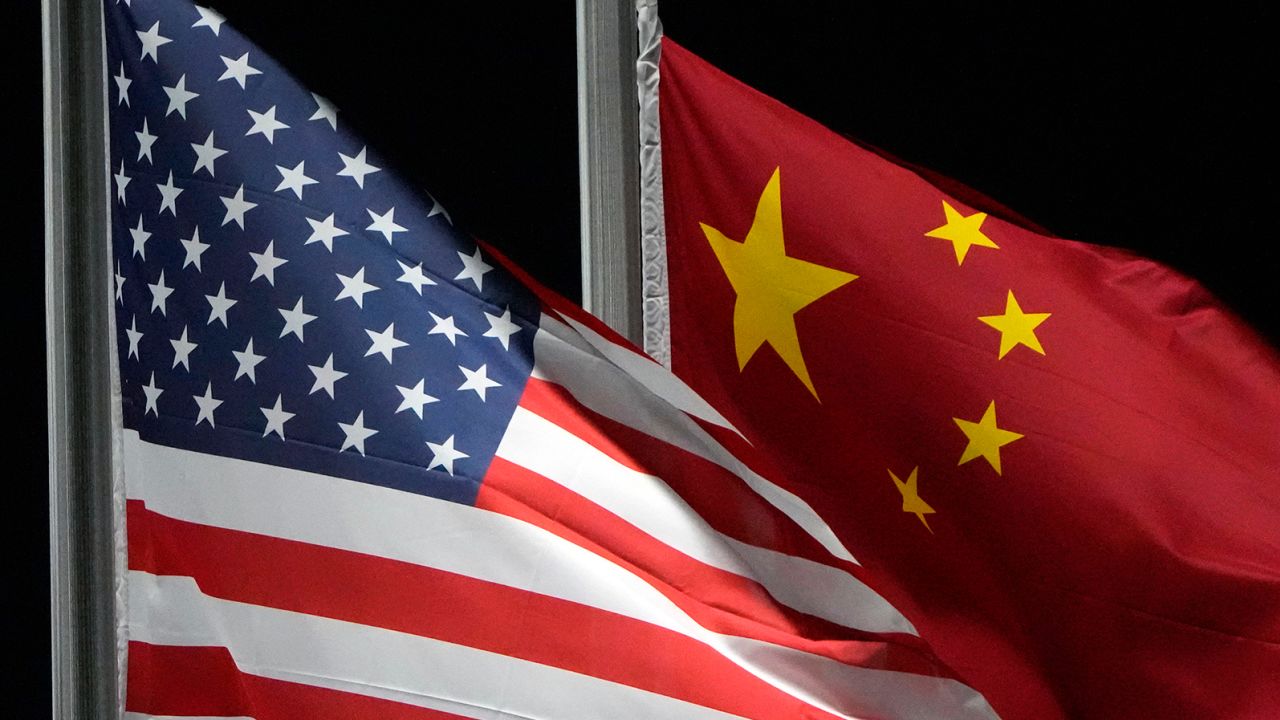

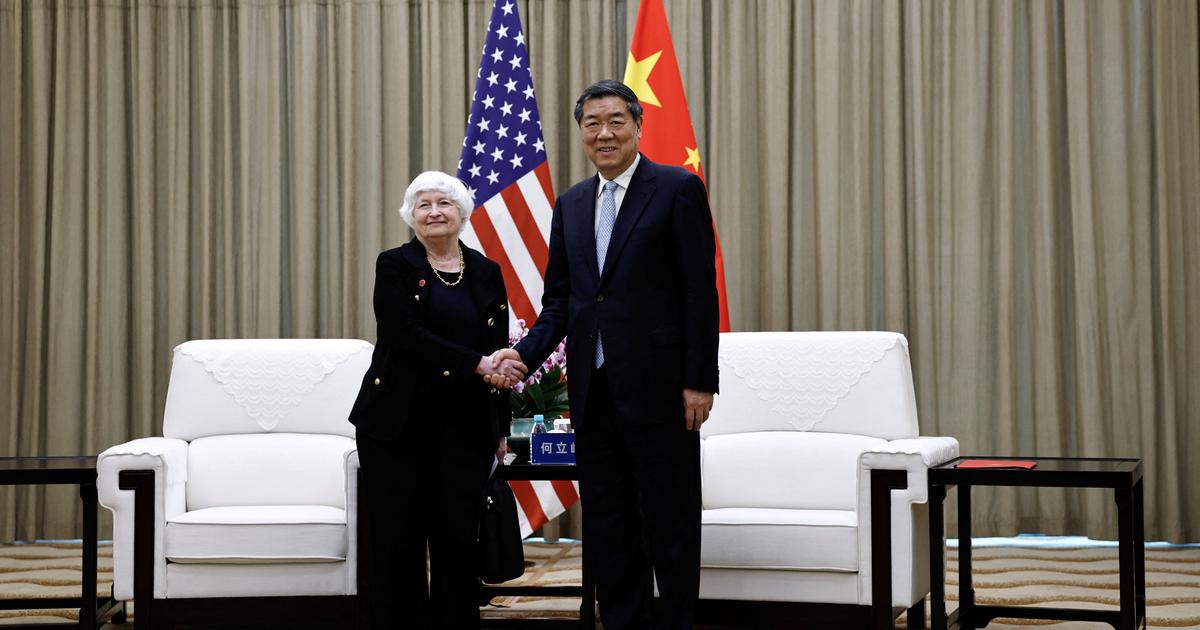
/cloudfront-eu-central-1.images.arcpublishing.com/prisa/CIWYA32EL2HWMI7DWEZGSK5F2U.jpg)
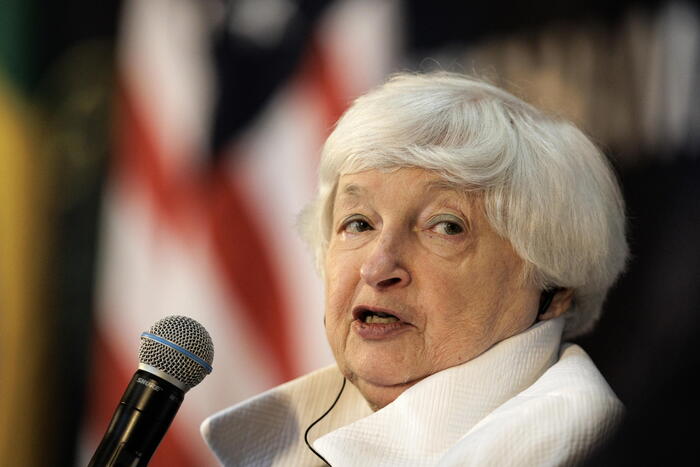

/cloudfront-eu-central-1.images.arcpublishing.com/prisa/FIJVMOBHZRWVDBKS3NAQ2M4JRE.jpg)
